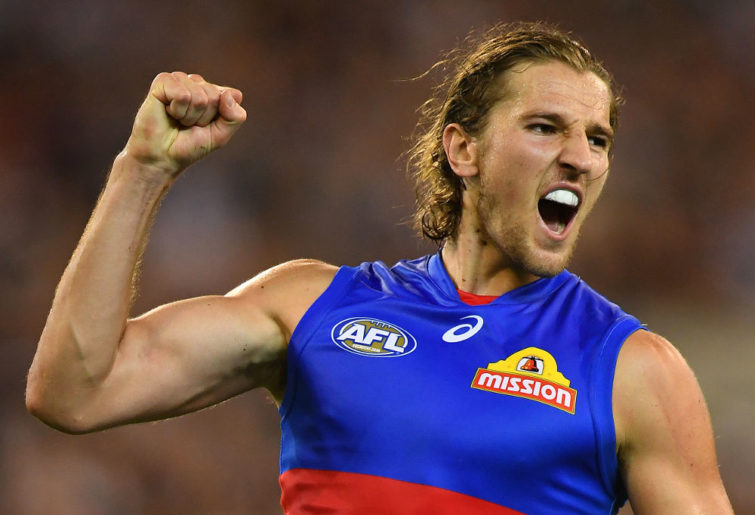The crucial cogs of AFL's Round 7: Which players need to be the difference makers?
We’re taking a look at one player from each team that needs to make a difference this week, starting with the ANZAC Day games.
After their drought-breaking flag in 2016, the Western Bulldogs missed the finals for two straight years and came dangerously close to making it a third.
They went on a tear in the back half of the 2019 season to clinch a finals berth, entering September as arguably the most exciting team.
While the year ended with a demolition job by the Giants in the second Elimination Final, their finish to the season and the big recruits of Josh Bruce and Alex Keath saw them enter the Premiership discussion again heading into 2020.
Despite just two seasons between finals appearances, the Bulldogs side has changed dramatically, especially for a Premiership team which was recognised as one of the youngest and least experienced in recent memory.
Almost half of the Bulldogs’ 2016 Premiership side (11) has retired or left the club, and only eight players in the 2019 Elimination final were a part of the 2016 grand final.
There was the inevitable retirement of veterans like Matthew Boyd, Dale Morris and Bob Murphy (while Murphy did not play in the grand final, he was influential as anyone to their success).
Liam Picken, Tom Boyd and Clay Smith all retired due to their respective battles with their health.
There was the polarising exits of Jake Stringer, Jordan Roughead and Luke Dahlhaus, while Joel Hamling joined Fremantle after the grand final.
Shane Biggs retired to pursue outside opportunities and Fletcher Roberts was delisted last year.
This is not to overlook the key remaining players from the Premiership and the natural influx of new players, which means list changes are inevitable.
Established players like Marcus Bontempelli, Jack Macrae and Lachie Hunter have continued their high standards; Easton Wood and Jason Johannisen are still crucial to the backline; while players like Josh Dunkley, Caleb Daniel and Toby McLean have continued to progress.

Marcus Bontempelli. (AAP Image/Julian Smith)
Valuable recruits like Sam Lloyd and Hayden Crozier have joined the club, and the Bulldogs have found gold at the draft with the likes of Aaron Naughton, Bailey Smith, Ed Richards and Tim English.
The large changes to the list are in part a tribute to the nature of that Premiership side.
The Bulldogs’ 2016 Premiership is not only historic for breaking the club’s 62-year long drought, but also because of the way they won it.
They experienced waves of injury to key players throughout the season, but they found a way to come together by the finals with every player playing a role, no matter their status or experience.
This mentality is best represented by the Bulldogs’ key backs during the 2016 Finals.
When Joel Hamling and Fletcher Roberts lined up in the grand final it was only their 23rd and 37th game respectively, and Dale Morris played the entire finals series with a broken back.
Despite this, the Bulldogs backline managed to topple the duo of Josh Kennedy (that year’s Coleman Medallist) and Jack Darling, the trio of Jeremy Cameron, Rory Lobb and Jonathon Patton, and ultimately the spearheads of Lance Franklin and Kurt Tippett in the grand final.
But the changes on-field are also accompanied by how the club’s culture has been challenged and changed since the Premiership.
During 2018, coach Luke Beveridge said the flag felt like “a lifetime ago” and questioned whether the unlikely win had done his team or the competition any good.
Football director Chris Grant admitted that sliding after the Premiership had always been possible, particularly because of the young list and loss of experience.
Bob Murphy likened the Bulldogs struggles post flag to an “identity crisis”, with the club questioning who they were now.
In the lead up to the Elimination Final last year there was general acknowledgment that this side was far different than 2016, and even a desire to distinguish it given the similarities (they both finished seventh and faced the Giants in a do or die final up in Sydney).
The Bulldogs have changed dramatically both on and off the field in the fallout of 2016.
While any success in the near future will be compared with or even grouped in with 2016, it is clear that this current Dogs side is a different prospect.